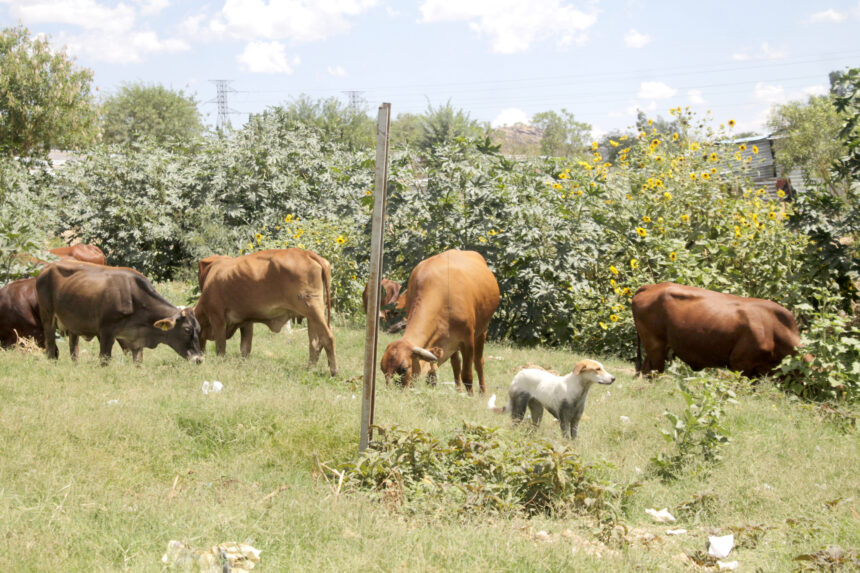Lahja Nashuuta
The Namibian Police in Kunene has pledged to enhance security at several border crossings, including the ungazetted points between Angola and Namibia.
This is in a bid to curb crime and illegal crossings between the two countries.
These efforts will further enhance and expedite legal avenues for orderly migration, and will be implemented in close collaboration with the Angolan government.
At the moment, stock theft is crippling farmers in rural Kunene.
Speaking to New Era during a recent visit to the region, Kunene region’s NamPol head of crime prevention division Obandja Ruhozu, said on average, more than 100 animals are stolen a day in the region.
He said rustlers are using the ungazetted bounders to head the livestock into Angola, and vice versa.
They also smuggle illicit products and drugs.
He said stock theft is more reported in areas bordering Kunene and Angola’s Cunene provinces, stating that crimes are more common in areas such as Otjimuhaka and Onungurura crossing points in the Epupa constituency.
Ruhozu attributed the high crime rate to the low water level in the Kunene Rive, as most people use the river to cross, instead of the registered point to avoid being documented. “Criminals are using the river to channel the stolen livestock into Angola, and vice versa,” he said.
Ruhozu added that there are no gazetted boundaries between Namibia and Angola, and there is a memorandum of understanding between the two governments that crossing points such as Otjimuhaka and Onungurura can be used by people.
“To control these people is very difficult. Of course, there are authorised points where these people are supposed to be recorded when they enter the country and when they leave. But in most cases, those people are not documented, as most of them use authorised points to sneak in during the night. It’s hard to take them back,” he said.
Ruhozu maintained that Kunene has a high number of illegal immigrants.
“According to our statistics, most of the crimes are being committed by illegal settlers. Besides that, such boundaries are also a haven for the criminals who use them to smuggle illicit products and drugs. It is the challenge here,” he said.
He further said ”our police and the Angolan police are working hand-in-hand to combat stock theft”.
Currently, there is a joint boundary patrol between the two governments, and Namibia has initiated its own patrol from June to August 2024 to curb criminal activities.
Although the two operations have been fruitful, Ruhozu pointed out the lack of resources as one of the limiting factors for the police to execute their duties.
“We have shortages of vehicles in the region. Most of our vehicles are grounded and need repair, but that did not stop us from fighting crimes. The last time we procured vehicles was in 2015. With the little we have, I am confident that we are managing crime in the region,” he said.
Ruhozu further points out gender-based violence, and rape as some of the other crimes common in the region.
To this end, Ruhozu revealed that there is a police awareness campaign in the region that reached out to the community on a weekly basis to sensitise people to report cases resulting in the numerous criminals arrested, and about their human rights in terms of crime prevention.


